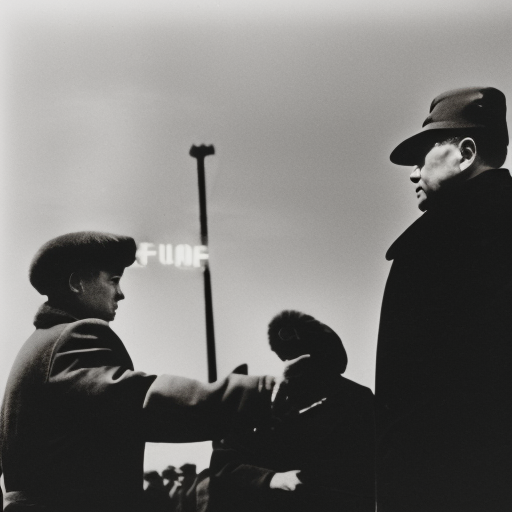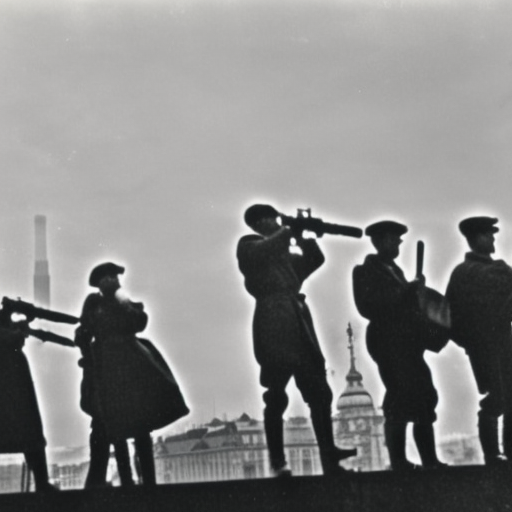The Brezhnev Doctrine: A Summary
The Brezhnev Doctrine was a foreign policy principle established by Soviet leader Leonid Brezhnev in 1968. It aimed to justify Soviet intervention in Eastern European countries to prevent any deviation from the communist ideology and maintain Soviet control over the region. The doctrine was a response to the Prague Spring, a period of political liberalization in Czechoslovakia that challenged Soviet dominance. The Brezhnev Doctrine had a significant impact on the Cold War and the relationship between the Soviet Union and its satellite states.
Background
In 1968, Czechoslovakia experienced a period of political and economic reforms known as the Prague Spring. Under the leadership of Alexander Dubček, the country sought to create “socialism with a human face,” allowing greater political freedom and economic decentralization. These reforms alarmed the Soviet Union and other Eastern Bloc countries, as they feared losing control over their satellite states.
The Doctrine
In response to the Prague Spring, Leonid Brezhnev introduced the Brezhnev Doctrine. It stated that the Soviet Union had the right to intervene in any socialist country that deviated from the principles of communism and threatened the unity of the socialist bloc. The doctrine aimed to justify Soviet military intervention as a means of preserving the socialist system and preventing any potential threat to Soviet control.
Application
The Brezhnev Doctrine was first applied in August 1968 when the Soviet Union led an invasion of Czechoslovakia. Soviet troops, along with forces from other Warsaw Pact countries, entered Czechoslovakia to suppress the Prague Spring and restore control over the country. The invasion was met with resistance from the Czechoslovak people, but ultimately the Soviet Union succeeded in reestablishing its dominance.
Following the invasion of Czechoslovakia, the Brezhnev Doctrine became the guiding principle for Soviet policy towards Eastern European countries. It was used to justify Soviet intervention in other instances where socialist governments faced internal challenges or sought greater independence from Moscow. The doctrine provided a legal and ideological framework for Soviet control over its satellite states.
Impact
The Brezhnev Doctrine had a profound impact on the Cold War and the relationship between the Soviet Union and its satellite states. It solidified Soviet control over Eastern Europe and prevented any significant political or economic reforms that could undermine Soviet influence. The doctrine also created a climate of fear and repression in the satellite states, as any dissent or deviation from the communist ideology was met with the threat of Soviet intervention.
The Brezhnev Doctrine contributed to the division between Eastern and Western Europe during the Cold War. It reinforced the perception of the Soviet Union as an aggressive and expansionist power, fueling tensions between the East and the West. The doctrine also strained relations between the Soviet Union and other communist countries, as some leaders felt threatened by the Soviet Union’s dominance and interventionist policies.
Decline
The Brezhnev Doctrine began to decline in the 1980s with the rise of Mikhail Gorbachev and his policy of glasnost (openness) and perestroika (restructuring). Gorbachev sought to improve relations with the West and promote political and economic reforms within the Soviet Union and its satellite states. This marked a departure from the strict control and interventionist policies of the Brezhnev era.
In conclusion, the Brezhnev Doctrine was a foreign policy principle that justified Soviet intervention in Eastern European countries to maintain control and prevent any deviation from the communist ideology. It had a significant impact on the Cold War and the relationship between the Soviet Union and its satellite states, solidifying Soviet control and creating a climate of fear and repression. However, the doctrine began to decline in the 1980s with the rise of Gorbachev and his policy of glasnost and perestroika.












